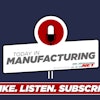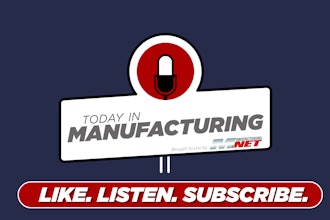
It’s become much harder to meet production targets while reducing costs and adapting to market disruptions.
Fortunately, technology exists that can lighten the load. How can better technology overcome today’s challenging environments and address the key pain points faced by manufacturers?
1. Meeting production targets within established manufacturing cost parameters
Supply chains continue to experience disruption from adverse weather, global conflict, and other challenges. Labor shortages are slowing already-manual processes and legacy data is thwarting accurate production cycle planning.
A more modern suite of digital tools offers manufacturers real-time visibility. With better technology and operational control, manufacturers can optimize resource allocation, improve scheduling, and minimize costly downtime.
2. Inability to adapt quickly to market disruptions
A hallmark of successful businesses today is to remain agile. But many manufacturers are mired in manual workflows, siloed legacy technology, and “the way we’ve always done it.” Without agility, production slowdowns or even temporary halts hit the bottom line hard.
The numbers show a massive jump in worldwide supply chain disruptions from 3,700 in 2019 to 11,642 in 2021. Unfortunately, three years later, these challenges have become the new normal. The New York Times recently reported that ongoing strikes, attacks in the Red Sea, and droughts are causing strain in 2024, with one expert calling today’s conditions “Covid Jr.”
Manufacturers need the right tools to mitigate what the world continues to throw in their direction. A key requirement is interoperability between platforms to provide easy access to real-time data, enabling faster decision-making and the ability to proactively respond to market disruptions.
3. Underutilization of data in siloed systems
More than 65% of supply chain managers use Excel spreadsheets as a primary operational tool, according to an Adelante SCM survey. It’s just one example of how siloed data is in manufacturing settings. The existing tools in most manufacturing settings do not provide the operational visibility manufacturers need.
What’s more, many companies operate older versions of their ERP platforms because they perceive that upgrading would create chaos in their customized on-the-ground workflows. It leaves a lot of efficiency on the table and security gaps that make these companies vulnerable but also slows them down.
Today’s technologies can integrate legacy, siloed IT and OT systems into a single source of truth, enabling better data-driven decision-making. Add in AI, and manufacturers have powerful big-picture, actionable insights into operations that can enhance efficiency, reduce costs, and drive innovation.
4. Global acute skilled labor, trades and talent shortage
The latest surveys show the talent shortage isn’t going away anytime soon. The National Association of Manufacturers (NAM) found that three-quarters of executives see attracting and retaining a quality workforce as a primary business challenge.
Manufacturing Dive reports a shortage of 1.9 million employees if the gap between open positions and skilled workers isn’t repaired.
Even as manufacturers search for skilled workers, they face employee burnout and turnover, particularly in some of the most critical areas of the business—those roles that, frankly, are just not easy to fill.
Automation and robotics could be the answer, streamlining repetitive tasks and processes. This can reduce reliance on labor and mitigate the impact of looming talent shortages. Automation also frees up resources for more complex tasks, increasing worker productivity and enabling manufacturers to achieve more with less.
 Debbie Altham, SikichSikich
Debbie Altham, SikichSikich
Manufacturers need to embrace technology that enables predictive maintenance and standardizes operational improvements. Innovation lies in the data we capture—but most manufacturers are missing the tools that can pull things together.
Today there are a range of tools to optimize asset management, including the Internet of Things sensors, AI and cloud technology. Leveraging these can maximize the lifespan of equipment, minimize unplanned downtime, and increase worker productivity.
6. Need to reduce quality-related costs
Manufacturers are tasked with improving quality while reducing costs. The American Society for Quality (ASQ) puts the price tag of reduced quality as high as 15% of sales. How can manufacturers cut quality-related costs while still improving output? Technology can help with quality control and assurance, non-conformance management, and corrective action tracking. The goal is to reduce defects, minimize rework, and improve customer satisfaction.
7. Ensuring consistent execution and alignment with overall business goals
To turn vision into action, manufacturers need a framework for planning, delivery, and monitoring outcomes. Better technology drives process standardization across multiple locations. The right tool helps manufacturers ensure consistent execution and alignment with business goals. Manufacturers must prioritize real-time tracking of performance metrics, facilitating your continuous improvement goals.
Now is the time for manufacturers to move from reactive to proactive and invest in technologies that can help them face these key production challenges head on.
With over 30 years of experience in technology, in both client and vendor roles, Debbie Altham offers industry leaders a clear perspective on how to navigate the road towards digital transformation; a perspective that marries strategic vision with a very clear value compass. Helping clients realize the promise of business application technology has been a primary career objective. As an industry senior director, Debbie focuses on manufacturing and services industries. With Debbie running point, the team at Sikich can help manufacturers meet their most pressing business technology needs, drawing from a wide portfolio of industry tailored products and services.






















